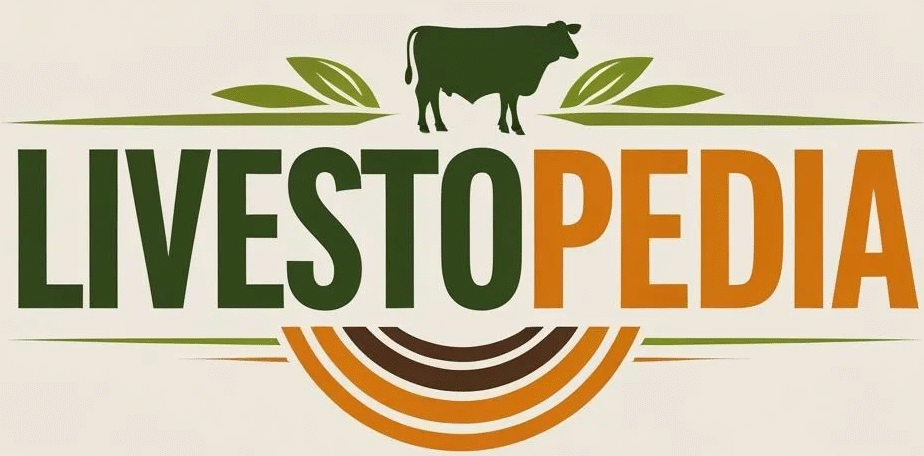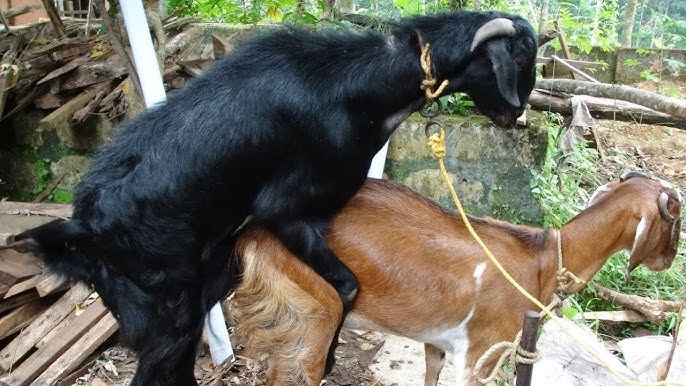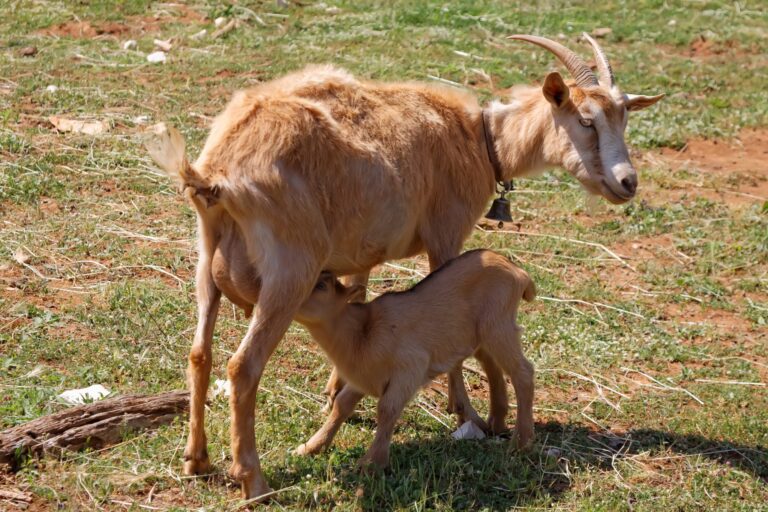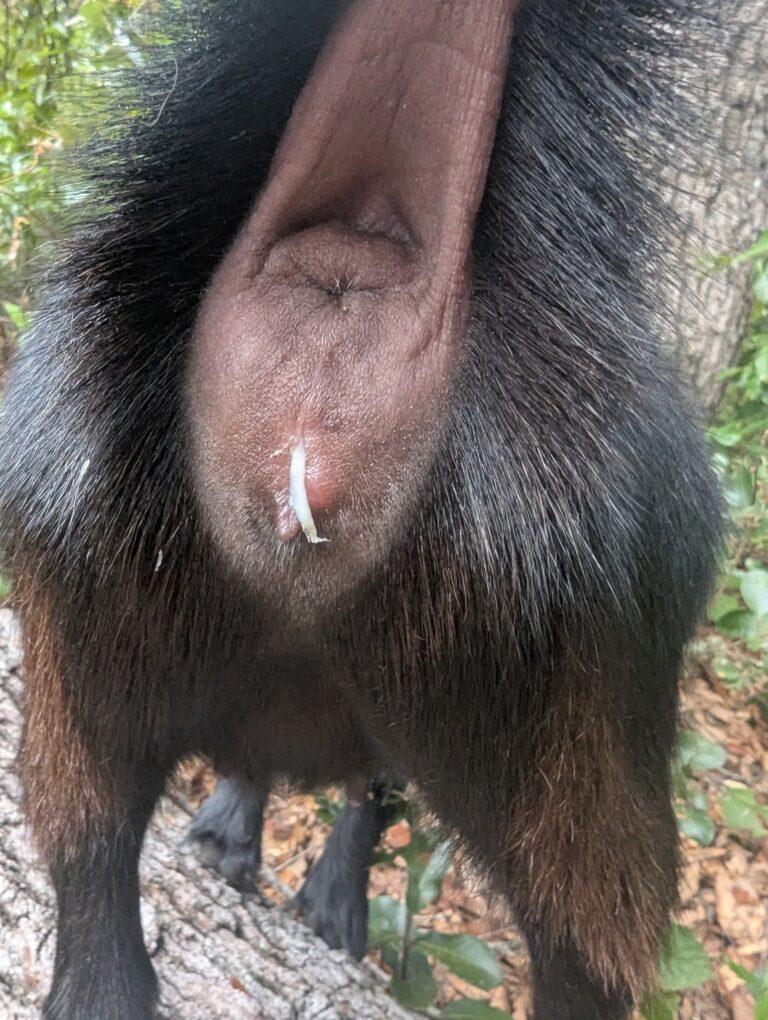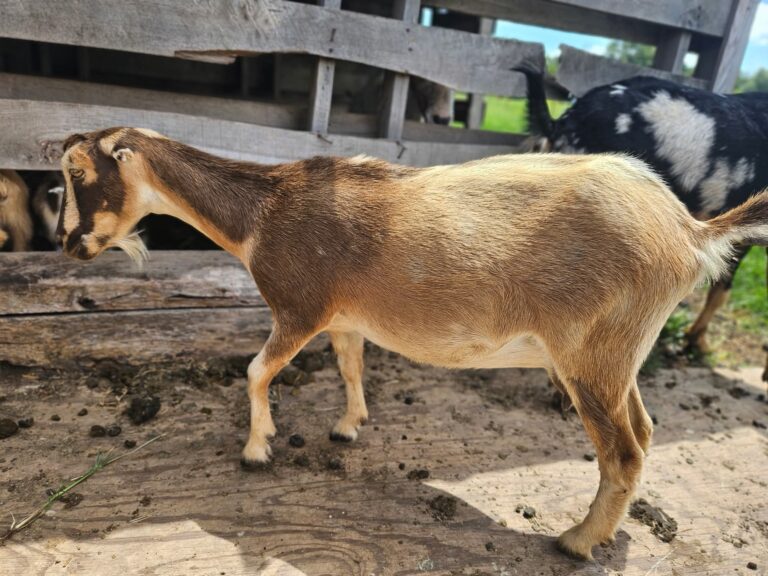Water is the most overlooked yet most essential nutrient in goat farming. While many new farmers focus heavily on feed and housing, water intake plays a direct role in digestion, milk production, body temperature regulation, and overall animal performance.
Simply put, a goat that lacks adequate water cannot thrive, no matter how good the feed is. Understanding how much water goats need daily and what affects their intake is crucial to raising a healthy, productive herd.
Average Water Requirements for Goats
On average, an adult goat needs between ½ gallon to 2 gallons (2–8 liters) of water per day, depending on several factors. These include:
- Age and weight of the goat
- Physiological stage (growing, pregnant, lactating)
- Environmental temperature and humidity
- Feed type (dry vs. fresh forage)
- Level of activity or production
Goats eating dry hay or grain-based diets drink more water than those grazing lush, moist pasture. Likewise, lactating does and fast-growing kids have significantly higher water needs than maintenance bucks or dry does.
Water Needs by Goat Class
1. Lactating Does: These goats have the highest water requirement due to milk production. A doe producing 3 quarts (about 3 liters) of milk per day may consume 1.5 to 2 gallons (6–8 liters) or more of water daily, especially in hot weather or when eating dry feed.
2. Growing Kids: Weaned kids need between ½ to 1 gallon (2–4 liters) of water per day depending on weight, age, and feed type. Water supports rapid growth and early rumen development.
3. Bucks and Dry Does: Adult goats not in production typically consume around 1 gallon (3–4 liters) of water daily. This can increase slightly during breeding season due to increased activity.
4. Pregnant Does: Water intake increases in the last trimester to support fetal development and udder preparation. Expect 1.25 to 1.5 gallons (5–6 liters) per day during this period.
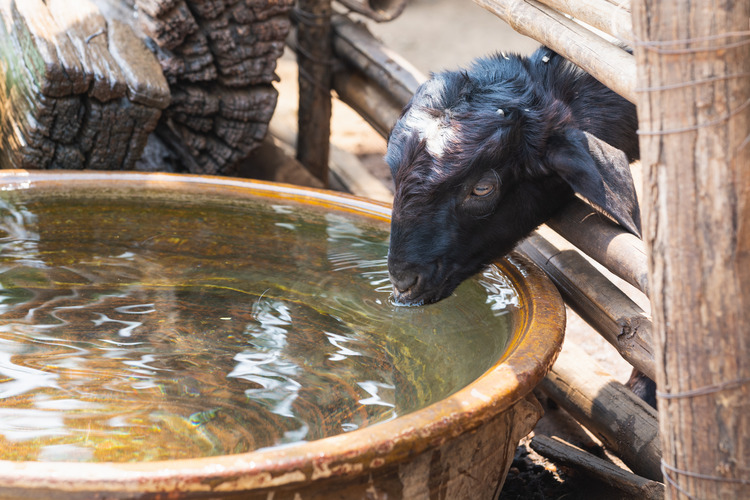
What Influences Water Intake in Goats?
Several factors impact how much water your goats will drink on any given day:
- Temperature: In hot climates or during summer, goats may drink twice their normal volume. Shade and ventilation help reduce stress and water demand.
- Feed Moisture: Fresh pasture or browse may supply up to 60% of a goat’s daily water needs. However, dry hay, pellets, or grains increase thirst.
- Salt and Mineral Intake: Free-choice minerals or salt blocks increase water consumption, which is normal and beneficial.
- Health and Stress: Sick goats, especially those with diarrhea or fever, need more water. Stress from transport, weaning, or overcrowding also reduces voluntary intake.
- Cleanliness and Accessibility: Goats are picky drinkers. They will often avoid dirty, stagnant, or overheated water. Poor water access, especially for kids or smaller goats, can lead to dehydration even if water is technically available.
Signs of Dehydration in Goats
- Sunken eyes
- Dry gums or nostrils
- Lethargy or reduced appetite
- Increased respiration rate
- Hard, dry droppings
- Loss of skin elasticity (pinch test on shoulder)
If you suspect dehydration, offer clean, cool water immediately. In severe cases, electrolyte solutions or veterinary attention may be necessary.
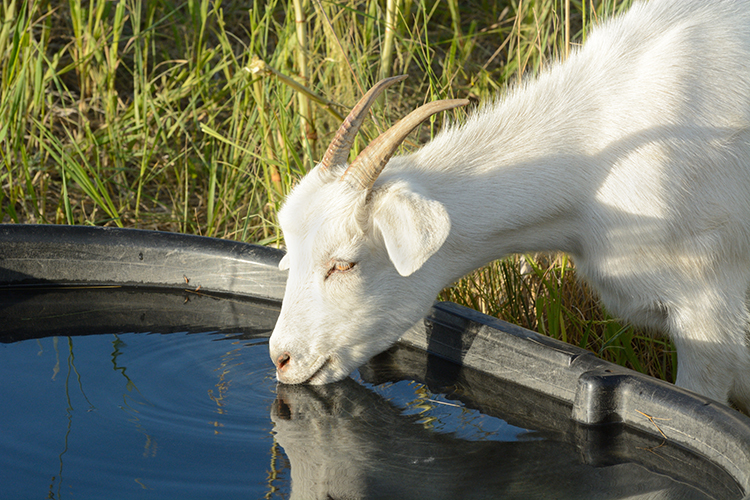
Tips for Ensuring Proper Hydration
- Provide clean water at all times. Refill troughs or buckets daily and clean them every few days to prevent algae buildup.
- Use shaded containers in hot weather to keep water cool and appealing.
- Elevate water troughs or use tip-proof bowls to reduce contamination from dirt or droppings.
- Place multiple water points if goats are spread across paddocks to prevent dominant animals from blocking access.
- During travel or shows, bring water from home, as some goats refuse unfamiliar water due to taste or smell differences.
- Monitor intake during cold months, as goats may reduce drinking when water is too cold. Use heated buckets if necessary in freezing climates.
Wrapping Up
Water is a production tool needed in goat farming. Whether you’re aiming for faster growth, more milk, or stronger kids, hydration drives everything.
If you want your goats to eat well, digest efficiently, and stay productive, always prioritize clean, cool, easily accessible water. It’s one of the simplest ways to boost performance and prevent health problems, yet often the most underappreciated.
Related:
